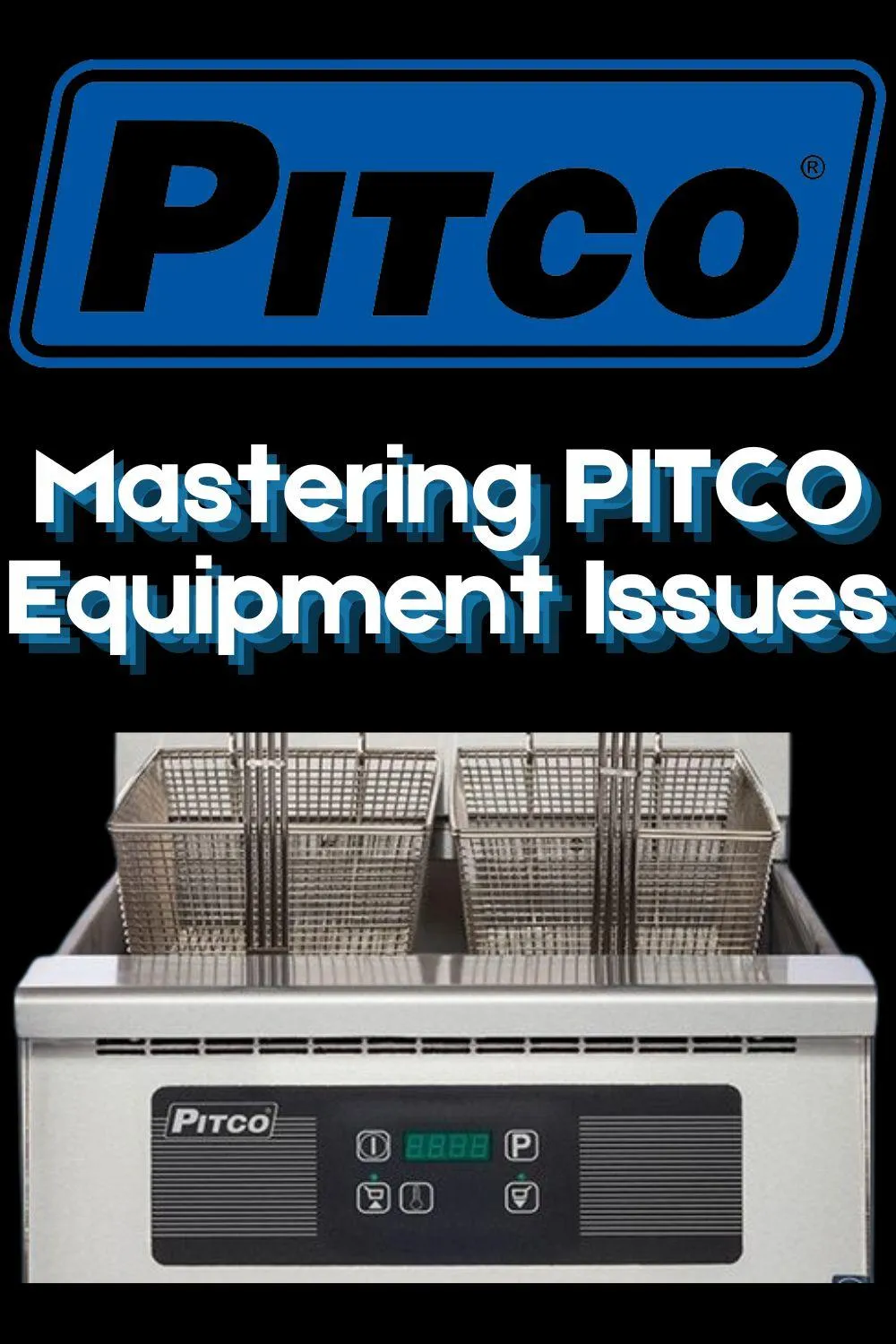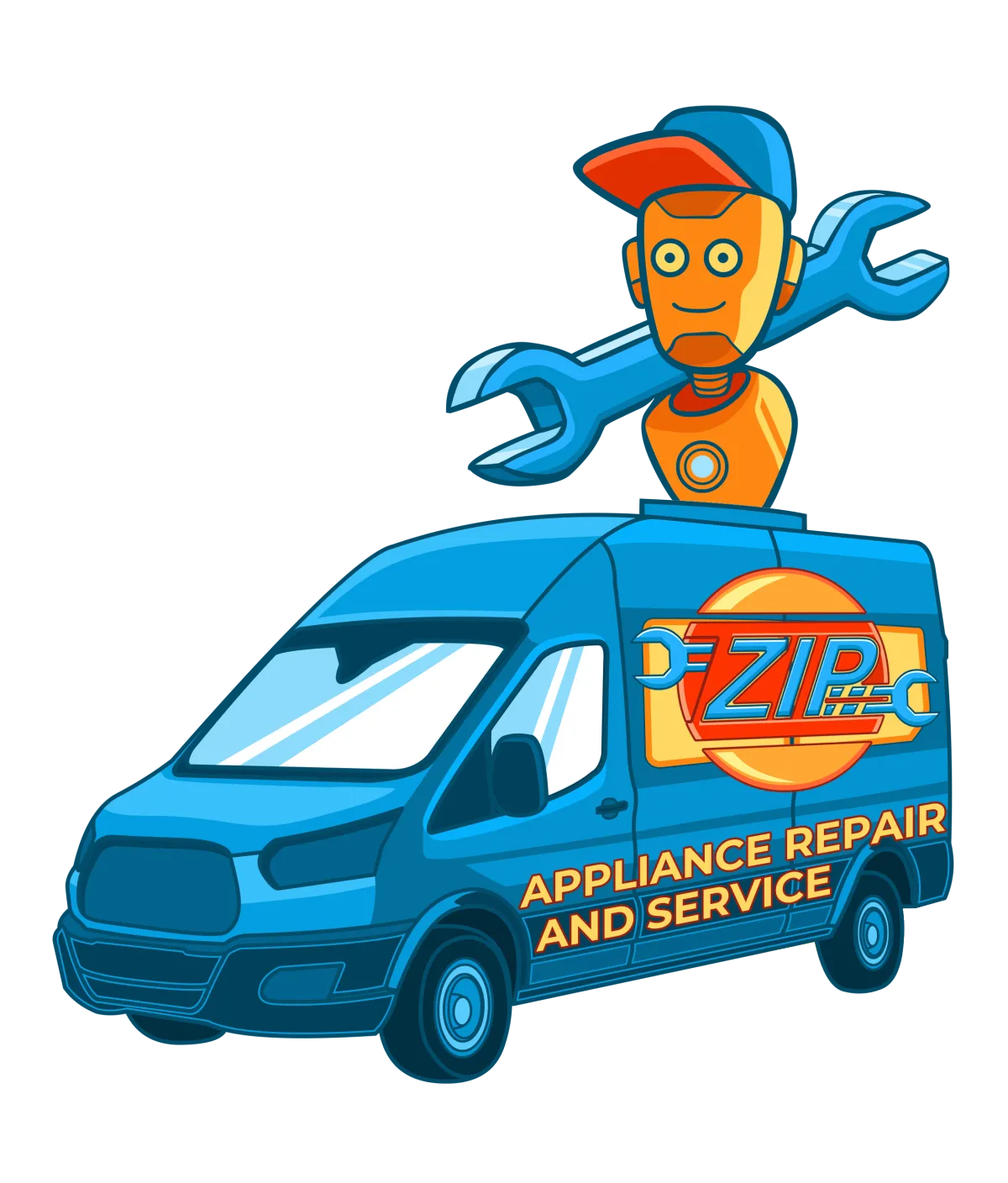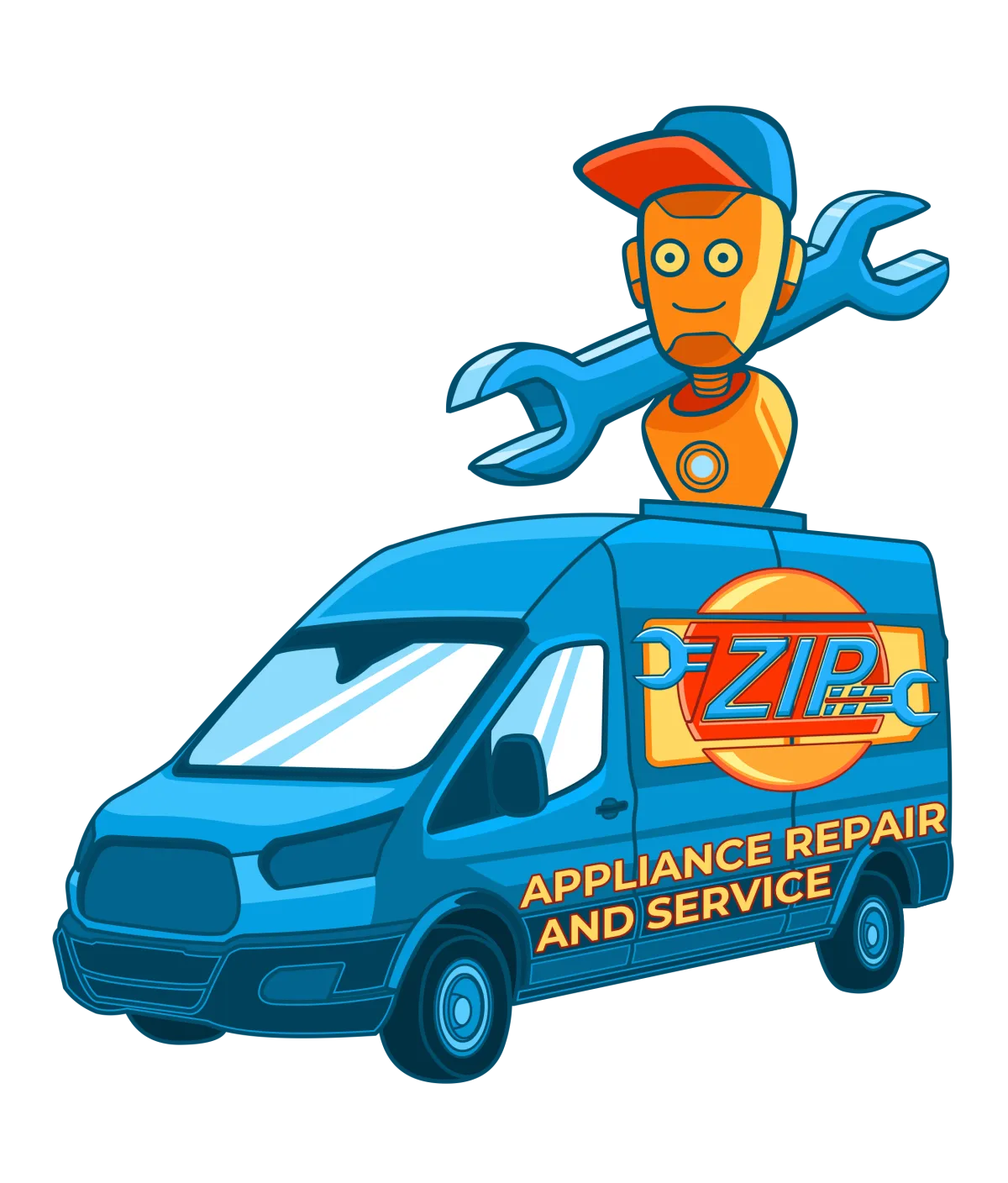THE FASTEST TOOLS IN TOWN
ZIP APPLIANCE REPAIR & SERVICE
Phone: (559) 272-4265
Phone: (559) 272-4265
Appliance Repair Tips For Fresno, CA Residents

Troubleshooting PITCO Equipment: Common Issues Unveiled
Troubleshooting PITCO Equipment: Common Issues Unveiled provides essential insights into maintaining kitchen efficiency by addressing common challenges head-on, ensuring your equipment performs at its best. - Appliance Boss
Introduction
PITCO equipment stands as a cornerstone of reliability in commercial kitchens, crucial for seamless operations. Understanding and addressing its potential issues are pivotal for maintaining peak performance and ensuring operational efficiency.
Importance of PITCO Equipment Reliability
Reliability in PITCO equipment is paramount, directly impacting kitchen productivity and food quality. Dependable equipment minimizes downtime and enhances customer satisfaction, crucial for business success.

Overview of Common Problems
Common issues in PITCO equipment can disrupt operations if left unchecked. From temperature control challenges to mechanical wear, each problem requires specific attention to maintain equipment efficiency.
Understanding PITCO Equipment
Brief History of PITCO
Founded with a vision for innovation in frying technology, PITCO has evolved into a leader in commercial kitchen solutions, renowned for its robust equipment and commitment to quality.
Types of Equipment Covered
PITCO's range includes fryers, filtration systems, and related components crucial for frying operations in various food service establishments, designed to meet diverse kitchen needs.
Temperature Control Issues
Inconsistent Heating
Inconsistent heating can stem from issues with thermostat calibration or faulty heating elements, impacting cooking consistency and food quality.
Thermostat Malfunctions
Faulty thermostats can lead to inaccurate temperature readings, affecting cooking times and product outcomes. Regular calibration is essential to ensure accurate heat regulation.
Heating Element Problems
Issues with heating elements, such as burnout or uneven heating, can compromise frying performance. Timely replacement is crucial to maintain consistent cooking temperatures.
Ignition System Failures
Pilot Light Issues
Commonly caused by clogged pilot orifices, pilot light issues can prevent fryers from igniting, requiring routine cleaning and maintenance to ensure reliable operation.
Ignition Module Failures
Electrical failures or wear in ignition modules can disrupt ignition sequences, necessitating professional diagnosis and replacement to restore fryer functionality.
Troubleshooting Ignition Problems
Identifying root causes of ignition failures involves thorough inspection of electrical connections, component integrity, and system performance to pinpoint and resolve issues.
Oil Management Challenges
Oil Degradation
Continuous frying leads to oil degradation, affecting food flavor and texture. Implementing regular filtration and replacement schedules extends oil lifespan and maintains food quality.
Filter System Failures
Malfunctioning filtration systems can result in oil contamination and decreased fryer efficiency. Regular inspection and cleaning of filters prevent system failures and ensure optimal oil quality.
Tips for Effective Oil Maintenance
Best practices include monitoring oil levels, filtering daily, and using quality filtration systems to extend oil life and preserve food quality while reducing operational costs.
Drainage and Valve Problems
Clogged Drain Valves
Accumulation of debris and grease can obstruct drain valves, hindering efficient oil drainage. Regular cleaning and maintenance prevent clogs and ensure smooth operations.
Leaking Drain Valves
Leaks from worn seals or valves can lead to oil spills and safety hazards. Inspecting and replacing damaged components promptly prevents potential equipment damage and operational disruptions.
Maintenance Tips for Drain Valves
Routine inspections and lubrication of drain valve components, coupled with proactive cleaning practices, mitigate risks of clogging and leakage, ensuring continuous fryer functionality.
Electrical and Wiring Issues
Faulty Wiring
Electrical issues, including damaged wiring or connections, pose safety risks and operational disruptions. Regular inspections by qualified technicians ensure wiring integrity and fryer reliability.
Control Panel Failures
Malfunctions in control panels can result from electrical faults or component wear, impacting fryer settings and operational controls. Prompt repairs or replacements maintain system efficiency.
Electrical Safety Considerations
Adhering to safety protocols and regulations, such as grounding fryer units and inspecting electrical components, ensures safe operation and mitigates risks of electrical hazards in commercial kitchens.
Mechanical Wear and Tear
Worn-Out Components
Continuous use leads to wear in fryer components, such as baskets, handles, and seals, affecting performance and safety. Scheduled replacement and maintenance extend equipment lifespan.
Importance of Regular Maintenance
Routine servicing prevents premature component wear and ensures fryer reliability. Timely inspections and part replacements optimize equipment performance and minimize downtime.
Replacing Wearable Parts
Identifying worn components through regular inspections and replacing them with OEM parts maintains fryer efficiency and reduces risks of operational failures in demanding kitchen environments.
Troubleshooting Steps
Initial Diagnosis Techniques
Systematic troubleshooting involves assessing temperature settings, inspecting electrical connections, and testing operational controls to identify underlying issues affecting fryer performance.
When to Call a Professional
Complex issues, such as electrical faults or ignition failures, require expertise beyond basic maintenance. Consulting certified technicians ensures accurate diagnosis and effective resolution.
Preventative Maintenance
Importance of Regular Cleaning
Cleaning fryer interiors, filtration systems, and external surfaces minimizes grease buildup and ensures hygienic operation. Adhering to cleaning schedules enhances equipment longevity and food safety.
Scheduled Inspections
Routine inspections by qualified technicians detect potential issues early, preventing costly repairs and optimizing fryer performance. Comprehensive checks ensure operational reliability and compliance with safety standards.
Using Quality Replacement Parts
Utilizing genuine replacement parts maintains equipment integrity and performance. OEM components ensure compatibility and durability, safeguarding against premature failures and operational disruptions.
Common PITCO Equipment FAQs
Addressing Customer Queries
Providing expert insights on common issues, such as temperature control and maintenance practices, resolves customer concerns and promotes proactive equipment care.
Expert Answers to Common Issues
Detailed responses on troubleshooting procedures, recommended maintenance schedules, and equipment upgrades empower users to maximize fryer efficiency and operational reliability.
Conclusion
Recap of Key Points
Effective management of PITCO equipment entails understanding and addressing common issues such as temperature control, ignition failures, oil management challenges, and mechanical wear. Regular maintenance and prompt troubleshooting are essential to sustain optimal performance and extend equipment lifespan.
Importance of Proactive Equipment Management
Proactive maintenance practices, including regular cleaning, scheduled inspections, and the use of quality replacement parts, enhance equipment reliability and minimize operational disruptions in commercial kitchens. By prioritizing maintenance, businesses can uphold food quality standards and customer satisfaction.
Contact Information for Professional Assistance
For expert PITCO equipment maintenance and repairs, rely on Zip Appliance Repair and Service. Visit our website at fresno.ziprepairservice.com or call us at (559) 272-4265. Our certified technicians are committed to delivering reliable service and ensuring your kitchen equipment operates at peak efficiency.

Troubleshooting PITCO Equipment: Common Issues Unveiled
Troubleshooting PITCO Equipment: Common Issues Unveiled provides essential insights into maintaining kitchen efficiency by addressing common challenges head-on, ensuring your equipment performs at its best. - Appliance Boss
Introduction
PITCO equipment stands as a cornerstone of reliability in commercial kitchens, crucial for seamless operations. Understanding and addressing its potential issues are pivotal for maintaining peak performance and ensuring operational efficiency.
Importance of PITCO Equipment Reliability
Reliability in PITCO equipment is paramount, directly impacting kitchen productivity and food quality. Dependable equipment minimizes downtime and enhances customer satisfaction, crucial for business success.

Overview of Common Problems
Common issues in PITCO equipment can disrupt operations if left unchecked. From temperature control challenges to mechanical wear, each problem requires specific attention to maintain equipment efficiency.
Understanding PITCO Equipment
Brief History of PITCO
Founded with a vision for innovation in frying technology, PITCO has evolved into a leader in commercial kitchen solutions, renowned for its robust equipment and commitment to quality.
Types of Equipment Covered
PITCO's range includes fryers, filtration systems, and related components crucial for frying operations in various food service establishments, designed to meet diverse kitchen needs.
Temperature Control Issues
Inconsistent Heating
Inconsistent heating can stem from issues with thermostat calibration or faulty heating elements, impacting cooking consistency and food quality.
Thermostat Malfunctions
Faulty thermostats can lead to inaccurate temperature readings, affecting cooking times and product outcomes. Regular calibration is essential to ensure accurate heat regulation.
Heating Element Problems
Issues with heating elements, such as burnout or uneven heating, can compromise frying performance. Timely replacement is crucial to maintain consistent cooking temperatures.
Ignition System Failures
Pilot Light Issues
Commonly caused by clogged pilot orifices, pilot light issues can prevent fryers from igniting, requiring routine cleaning and maintenance to ensure reliable operation.
Ignition Module Failures
Electrical failures or wear in ignition modules can disrupt ignition sequences, necessitating professional diagnosis and replacement to restore fryer functionality.
Troubleshooting Ignition Problems
Identifying root causes of ignition failures involves thorough inspection of electrical connections, component integrity, and system performance to pinpoint and resolve issues.
Oil Management Challenges
Oil Degradation
Continuous frying leads to oil degradation, affecting food flavor and texture. Implementing regular filtration and replacement schedules extends oil lifespan and maintains food quality.
Filter System Failures
Malfunctioning filtration systems can result in oil contamination and decreased fryer efficiency. Regular inspection and cleaning of filters prevent system failures and ensure optimal oil quality.
Tips for Effective Oil Maintenance
Best practices include monitoring oil levels, filtering daily, and using quality filtration systems to extend oil life and preserve food quality while reducing operational costs.
Drainage and Valve Problems
Clogged Drain Valves
Accumulation of debris and grease can obstruct drain valves, hindering efficient oil drainage. Regular cleaning and maintenance prevent clogs and ensure smooth operations.
Leaking Drain Valves
Leaks from worn seals or valves can lead to oil spills and safety hazards. Inspecting and replacing damaged components promptly prevents potential equipment damage and operational disruptions.
Maintenance Tips for Drain Valves
Routine inspections and lubrication of drain valve components, coupled with proactive cleaning practices, mitigate risks of clogging and leakage, ensuring continuous fryer functionality.
Electrical and Wiring Issues
Faulty Wiring
Electrical issues, including damaged wiring or connections, pose safety risks and operational disruptions. Regular inspections by qualified technicians ensure wiring integrity and fryer reliability.
Control Panel Failures
Malfunctions in control panels can result from electrical faults or component wear, impacting fryer settings and operational controls. Prompt repairs or replacements maintain system efficiency.
Electrical Safety Considerations
Adhering to safety protocols and regulations, such as grounding fryer units and inspecting electrical components, ensures safe operation and mitigates risks of electrical hazards in commercial kitchens.
Mechanical Wear and Tear
Worn-Out Components
Continuous use leads to wear in fryer components, such as baskets, handles, and seals, affecting performance and safety. Scheduled replacement and maintenance extend equipment lifespan.
Importance of Regular Maintenance
Routine servicing prevents premature component wear and ensures fryer reliability. Timely inspections and part replacements optimize equipment performance and minimize downtime.
Replacing Wearable Parts
Identifying worn components through regular inspections and replacing them with OEM parts maintains fryer efficiency and reduces risks of operational failures in demanding kitchen environments.
Troubleshooting Steps
Initial Diagnosis Techniques
Systematic troubleshooting involves assessing temperature settings, inspecting electrical connections, and testing operational controls to identify underlying issues affecting fryer performance.
When to Call a Professional
Complex issues, such as electrical faults or ignition failures, require expertise beyond basic maintenance. Consulting certified technicians ensures accurate diagnosis and effective resolution.
Preventative Maintenance
Importance of Regular Cleaning
Cleaning fryer interiors, filtration systems, and external surfaces minimizes grease buildup and ensures hygienic operation. Adhering to cleaning schedules enhances equipment longevity and food safety.
Scheduled Inspections
Routine inspections by qualified technicians detect potential issues early, preventing costly repairs and optimizing fryer performance. Comprehensive checks ensure operational reliability and compliance with safety standards.
Using Quality Replacement Parts
Utilizing genuine replacement parts maintains equipment integrity and performance. OEM components ensure compatibility and durability, safeguarding against premature failures and operational disruptions.
Common PITCO Equipment FAQs
Addressing Customer Queries
Providing expert insights on common issues, such as temperature control and maintenance practices, resolves customer concerns and promotes proactive equipment care.
Expert Answers to Common Issues
Detailed responses on troubleshooting procedures, recommended maintenance schedules, and equipment upgrades empower users to maximize fryer efficiency and operational reliability.
Conclusion
Recap of Key Points
Effective management of PITCO equipment entails understanding and addressing common issues such as temperature control, ignition failures, oil management challenges, and mechanical wear. Regular maintenance and prompt troubleshooting are essential to sustain optimal performance and extend equipment lifespan.
Importance of Proactive Equipment Management
Proactive maintenance practices, including regular cleaning, scheduled inspections, and the use of quality replacement parts, enhance equipment reliability and minimize operational disruptions in commercial kitchens. By prioritizing maintenance, businesses can uphold food quality standards and customer satisfaction.
Contact Information for Professional Assistance
For expert PITCO equipment maintenance and repairs, rely on Zip Appliance Repair and Service. Visit our website at fresno.ziprepairservice.com or call us at (559) 272-4265. Our certified technicians are committed to delivering reliable service and ensuring your kitchen equipment operates at peak efficiency.
If your dryer has been giving you problems, contact Zip Appliance Repair & Service at (559) 272-4265

Appliance Repair In A Zip
If you need a dryer repair call our Team at (559) 272-4265, or visit our online scheduling page to request service.
Appliance Repair
HAVE A QUESTION, CALL (559) 272-4265

Online Offers
Take advantage of our online discount offers - save time and money...

Residential & Commercial appliances
See what our company can do for you

Appliance Repair Tips
If your appliance is not working properly...

1405 Commercial Way ste 100
Bakersfield, CA 93309
Lic # 1116346
Equipment We Sevice
- A Call To Confirm Your Appointment Time
- A Email Detailing Your Assigned Technician
- Information Needed Before The Repair Can Be Started
- An Estimate Of Work To Be Done
© 2025 ZIP APPLIANCE REPAIR & SERVICE LLC







